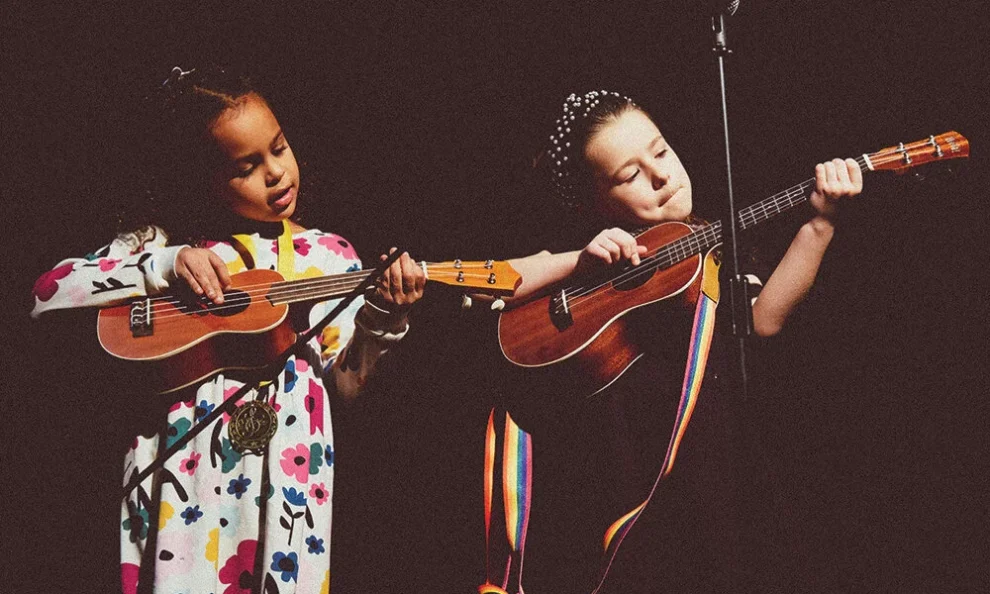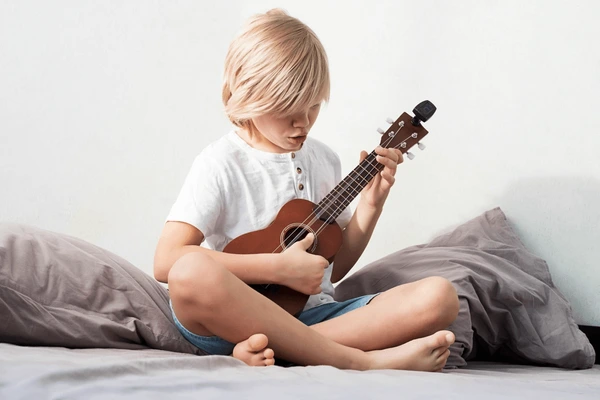The growing popularity of ukulele lessons for kids Singapore reflects a broader understanding that musical education shapes young minds in profound and lasting ways. This diminutive Hawaiian instrument, with its cheerful timbre and approachable learning curve, has emerged as an ideal introduction to the world of music for Singapore’s children, offering them a gateway to creativity that transcends cultural boundaries and academic pressures.
The ukulele’s journey to Singapore mirrors the island nation’s own multicultural evolution. What began as a Portuguese instrument, transformed in Hawaii, and embraced worldwide, now finds particular resonance in Singapore’s educational landscape, where parents increasingly recognise the value of musical literacy alongside traditional academic pursuits.
The Pedagogical Foundation of Early Musical Education
Children possess a natural capacity for musical absorption that diminishes with age, making early instruction particularly valuable. Research consistently demonstrates that musical training enhances cognitive development, improves mathematical reasoning, and strengthens language acquisition skills. The ukulele, with its four strings and simple chord structures, provides an accessible entry point that builds confidence whilst developing fundamental musical concepts.
Young ukulele learners in Singapore benefit from the ukulele’s forgiving nature. Unlike larger instruments that require significant physical development, the ukulele accommodates small hands and shorter attention spans. This compatibility ensures that children experience success rather than frustration during their initial musical encounters.
Age Appropriate Learning Structures
Singapore ukulele instruction for children typically begins around age five, when fine motor skills sufficiently develop to manage basic chord formations. However, the approach varies considerably based on developmental stages:
- Ages 5 to 7: Focus on simple strumming patterns and single-note melodies using familiar songs
- Ages 8 to 10: Introduction of basic chord progressions and rhythm variations
- Ages 11 to 12: More complex chord structures and beginning fingerpicking techniques
- Teenagers: Advanced techniques including jazz chords and solo arrangements
This progressive structure ensures that children build upon previous knowledge whilst maintaining enthusiasm for continued learning.
Cultural Integration and Song Selection
Singapore’s multicultural environment provides rich material for ukulele instruction. Children learn traditional Malay folk songs alongside Western pop tunes and Chinese melodies, creating a comprehensive musical education that reflects their diverse heritage.
One experienced instructor noted, “The beauty of teaching ukulele to Singaporean children lies in their natural acceptance of musical diversity. They transition seamlessly from playing ‘Rasa Sayang’ to contemporary Disney songs, absorbing cultural nuances through melody and rhythm.”
This cultural breadth extends beyond entertainment value, fostering appreciation for different musical traditions whilst building technical competency across various stylistic approaches.
Cognitive Benefits and Academic Enhancement
Musical instruction through ukulele lessons provides measurable academic benefits for young learners. Studies indicate that children receiving regular music education demonstrate improved reading comprehension, mathematical problem solving, and memory retention compared to their non-musical peers.
The ukulele’s chord structures introduce children to pattern recognition and spatial relationships, skills directly transferable to mathematical concepts. Additionally, reading musical notation enhances visual processing abilities that support traditional literacy development.
Singapore’s competitive academic environment makes these supplementary benefits particularly valuable. Parents often discover that children receiving music instruction demonstrate improved focus and disciplinary habits across all subjects.
Social Development Through Group Learning
Many children’s ukulele programmes in Singapore incorporate group instruction elements, recognising the social benefits of collaborative musical experiences. Ensemble playing teaches patience, active listening, and cooperative problem solving whilst building friendships around shared musical interests.
Group dynamics also provide performance opportunities that build confidence and public speaking skills. Children learn to support ensemble members, manage stage anxiety, and celebrate collective achievements, valuable life skills extending beyond musical contexts.
Physical and Motor Skill Development
Ukulele playing requires coordination between both hands whilst maintaining proper posture and breathing patterns. These physical demands strengthen fine motor control and bilateral brain coordination, supporting overall physical development.
Children with learning differences often benefit particularly from ukulele instruction. The instrument’s tactile nature and immediate audio feedback provide alternative learning pathways for students who struggle with traditional educational approaches.
Technology Integration in Modern Instruction
Contemporary kids ukulele lessons Singapore increasingly incorporate digital tools and applications. Interactive apps provide engaging practice experiences between formal lessons, whilst recording capabilities allow children to hear their progress objectively.
Online resources supplement traditional instruction without replacing human guidance. Children can access chord charts, play-along tracks, and instructional videos, reinforcing concepts learned during face-to-face sessions.
Selecting Appropriate Instruments and Equipment
Children require properly sized instruments to ensure comfortable playing positions and successful learning experiences. Soprano ukuleles typically suit younger children, whilst concert sizes accommodate older students with larger hands.
Quality considerations balance durability with sound production. Children’s instruments must withstand enthusiastic handling whilst producing pleasant tones that encourage continued practice.
Essential accessories include:
- Properly sized picks and fingerpicks
- Music stands adjusted for children’s heights
- Cases for safe transport and storage
- Tuners appropriate for young users
Long Term Musical Pathways
Children beginning with ukulele often transition to other stringed instruments as their interests develop. The fundamental skills acquired transfer directly to guitar, mandolin, and violin study.
Some students pursue ukulele mastery, exploring advanced techniques including fingerstyle arrangements and composition. Singapore’s growing ukulele community provides performance opportunities for serious young players.
Parental Involvement and Home Practice
Successful musical education requires parental support and encouragement. Children benefit from regular practice schedules and family participation in musical activities. Parents need not possess musical backgrounds to support their children’s ukulele journey.
Building Lifelong Musical Appreciation
The ultimate goal extends beyond technical proficiency to lifelong musical engagement. Children who experience positive musical instruction often maintain active musical interests throughout their lives.
Singapore’s vibrant cultural landscape provides numerous opportunities for musically educated children to engage with professional performances and community ensembles, reinforcing their musical education through real-world experiences.
The investment in musical education pays dividends far exceeding immediate pleasure. Children develop discipline, creativity, and social skills that serve them throughout their careers, making the choice to pursue ukulele lessons for kids Singapore both wise and rewarding.










